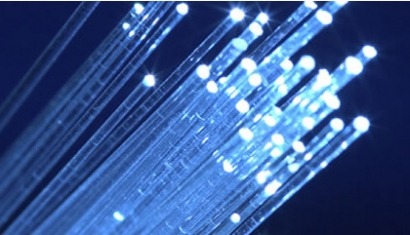
It’s one thing being able to sell your surplus rooftop generated solar power back to the grid, to programme your washing machine to turn on automatically when the price of electric power is at its lowest, or to plug your electric vehicle in so that the power in its batteries can be used by the electricity utilities to help meet peak demand.
But what about your air conditioning – or for that matter any other electrical device – being turned off by a computer programme to help smooth out the peaks of electricity demand? Will the consumer tolerate a situation where control is handed over, not to another individual, but to a computer?
The point is that the smart grid is not about the transmission of energy – this is only the starting point. It is about the convergence of IT and energy and this makes it much larger than this. In fact, a better description for the smart grid might be the ‘Internet of things’ – an energy/communications grid where machines talk to machines independent of human intervention.
Already, a strategy called ‘demand response’ or ‘DR’ is becoming increasingly important for utilities in their efforts to ensure enough electricity is available on the grid to meet demand and avoid power outages. A major development in this strategy is ‘automated demand response technology’ or ‘ADR’ that automates the process of reducing the energy drawn by participants in the DR programme by means of control systems located on their premises.
According to Pike Research, the US clean tech market intelligence company, the use of ADR is growing and is being driven by open standards such as OpenADR. Pike notes: “Thanks to ADR, it is now possible for DR to evolve to the next level by reaching a broader end-user market with increased access to sophisticated and advanced types of program options, such as ancillary services.” Pike adds that while ADR has to date primarily been confined to the US, it is now being introduced in other countries such as Canada, the UK, China, Hong Kong, and New Zealand and is spreading around the world.
The advent of the smart grid will only hasten the implementation of ADR and broaden and deepen its use. Already, white good manufacturers are making washing machines, dishwashers and other electrical appliances with computer chips that only need to be activated and programmed to become an integral part of the IT–energy convergence and the ‘Internet of things’.
You may think this is a little far-fetched but, make no mistake, we are at the dawn of a revolution where the control of machines is increasingly taken out of human hands and placed under the command of computer programmes. Of course, those programmes will have been developed by humans, but what are their priorities? What is the rationale for their operation? Presumably, in the case of energy, the aim will be to allocate the supply of energy in the most efficient way. But the most efficient way for whom or what?
There are many issues that will need to be addressed here, many of them ethical. Have we started to discuss them yet? Are we even aware of them?
Customers must come first for smart meter success
Indeed, in a report released this week, smart data specialist Onzo calls for customer engagement to be a priority if smart meter programmes are to influence energy consumption.
Smart meter deployment is already facing setbacks: early trials have failed to achieve reductions in energy use, questions have been raised about loss of privacy and doubts have arisen as to whether this technology actually translates into value for consumers. "Without concerted engagement with homeowners, smart meters will fail to achieve success," says Onzo, which urges those undergoing or planning smart meter programmes to take an integrated approach, which includes the analysis and presentation of data, if they want to achieve anything more than just an end to estimated bills.
The report argues that smart meter interfaces, such as in-home displays (IHDs) and web tools, have been too focused on the needs of utilities, using displays as a means of supporting complex time of use and tariff information rather than as a tool to engage and inform energy users.
“If consumers are to be encouraged to make more considered choices about how they use energy, they need access to more detailed historic data and more powerful analytic and display tools to continue the level of engagement,” explains Nick Hunn, Onzo’s Chief Technical Officer.
In an effort to deliver more of the benefits of smart meters to consumers, Onzo has developed an IHD that provides customers with actionable and compelling data. Coupled with well-designed and engaging web services, it is being used today to drive real customer behavioural change.
The results are impressive: when displays were distributed by Onzo to over 80,000 energy users, studies revealed that they brought about an 8% reduction in overall energy use and a further 5% shift away from using energy at peak times. Not only were these changes sustained, they were self-motivated and did not require financial incentives.
Including energy users in smart meter activity by providing comprehensive data analysis and presenting it in a clear, useful way, can therefore have a significant positive impact on energy consumption.
“When smart meter specifications are expanded to include the analysis and accessible presentation of energy use data we can achieve the stated goal of sustained behaviour change,” explains Nick Hunn.
“Approached in this way, smart programmes have real potential increase energy efficiency, ease peak demand and dramatically improve the relationship between customers and utilities.”
The smart grid and related issues will be covered in detail at the All-Energy Australia 2012 conference to be held in Melbourne on 10 and 11 October 2012.
For additional information:

